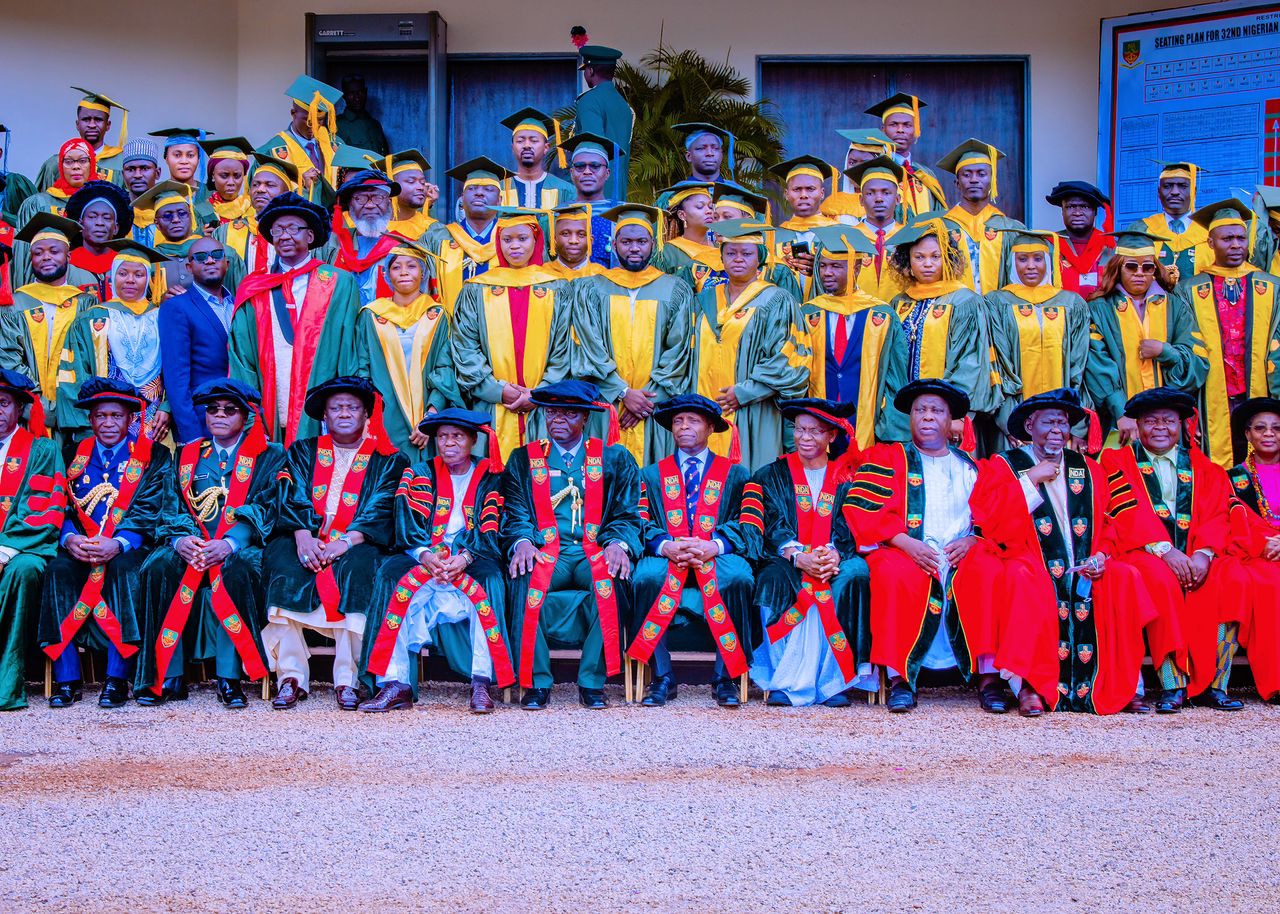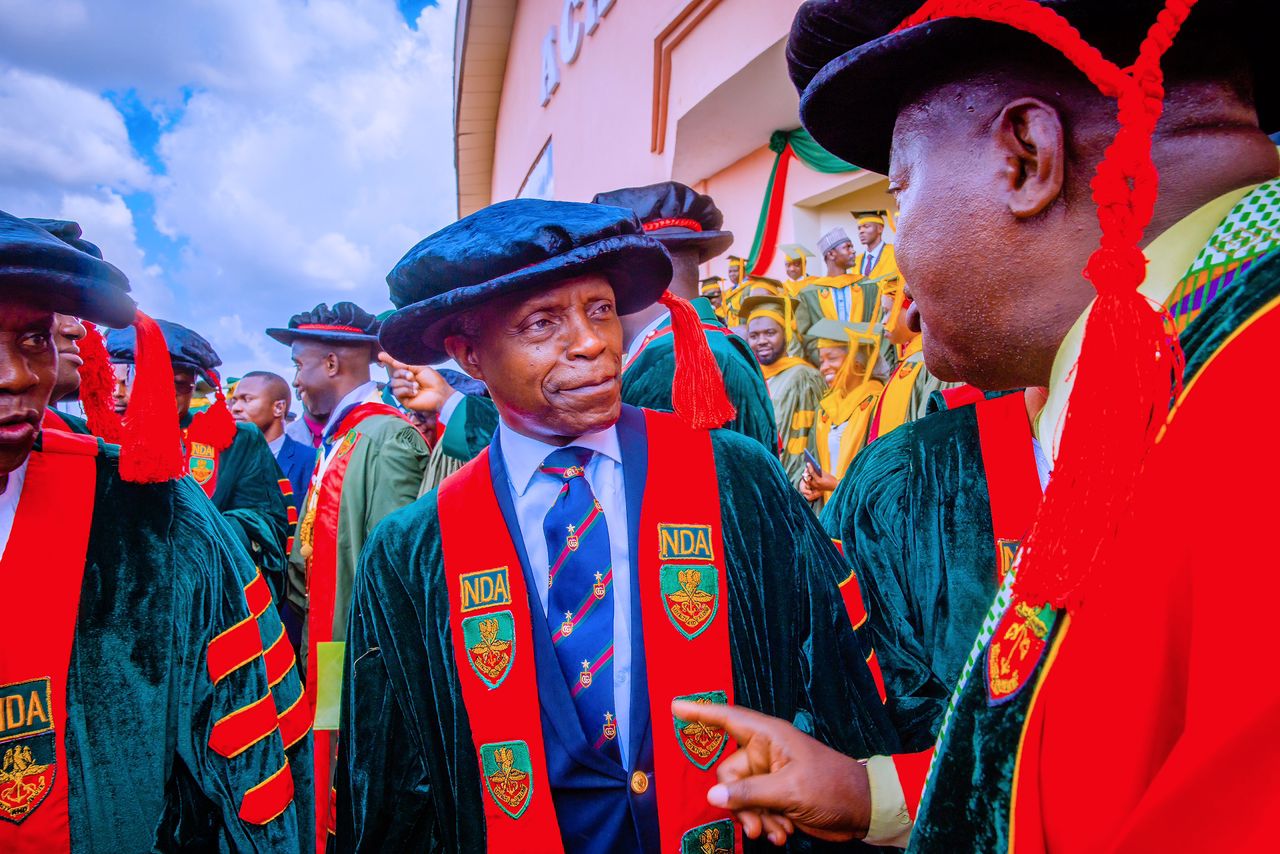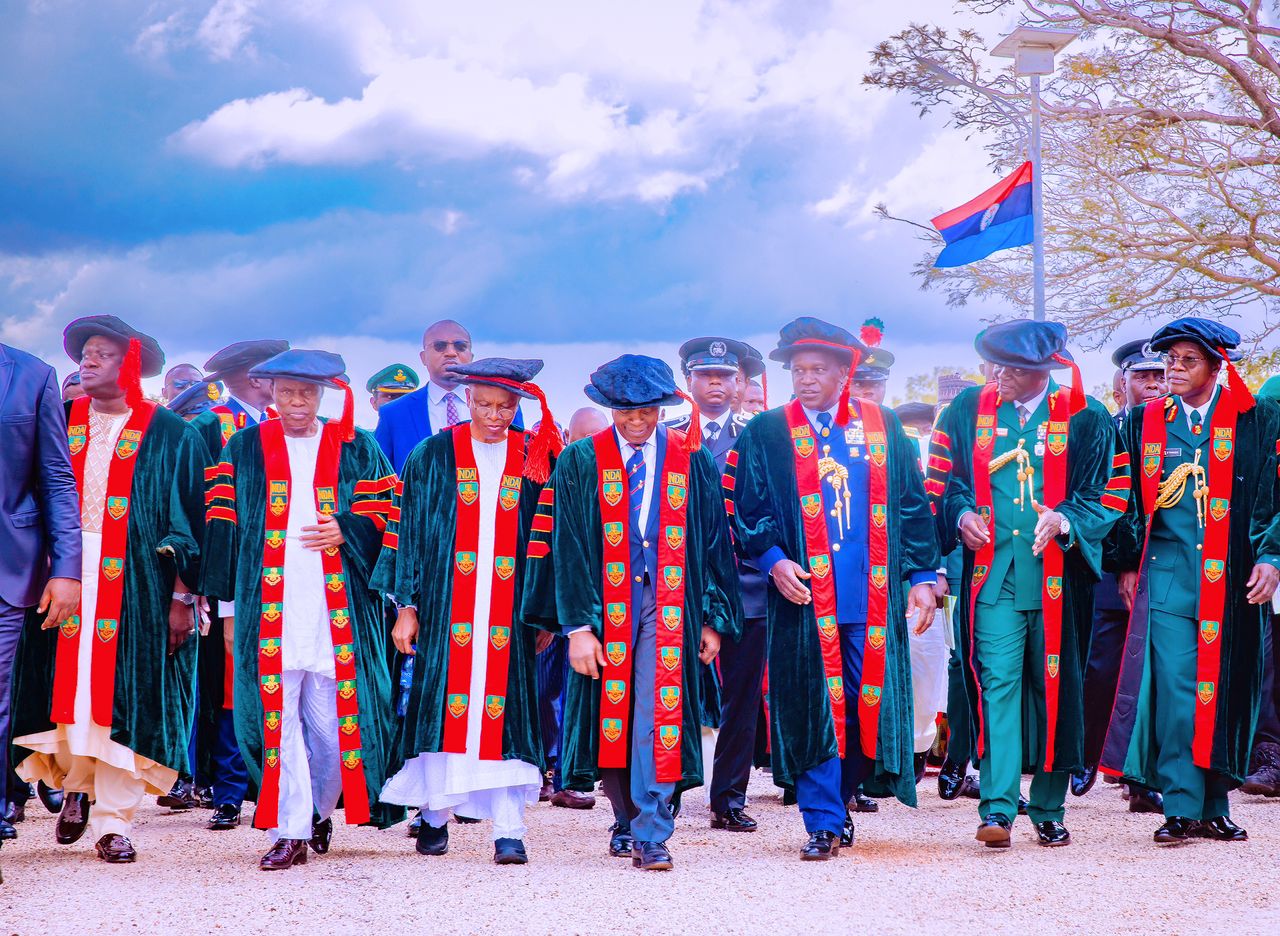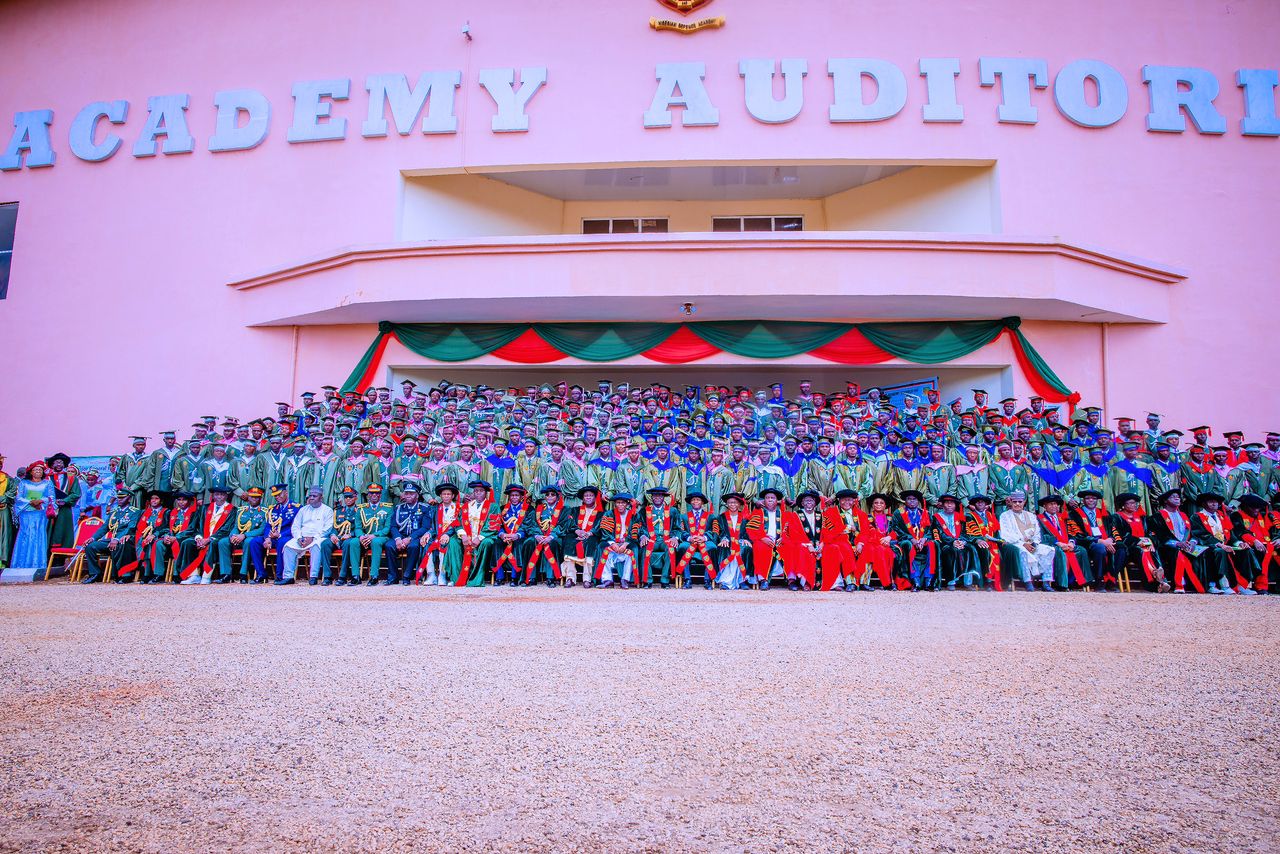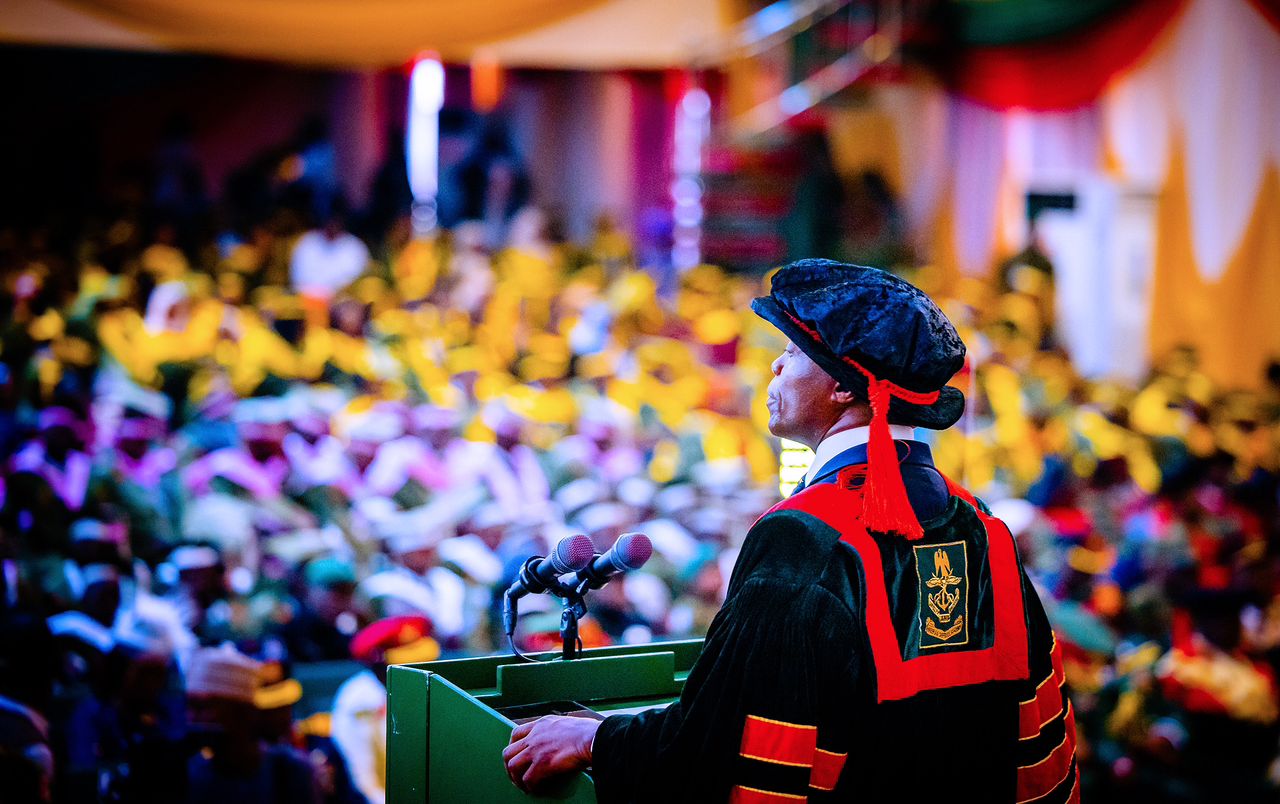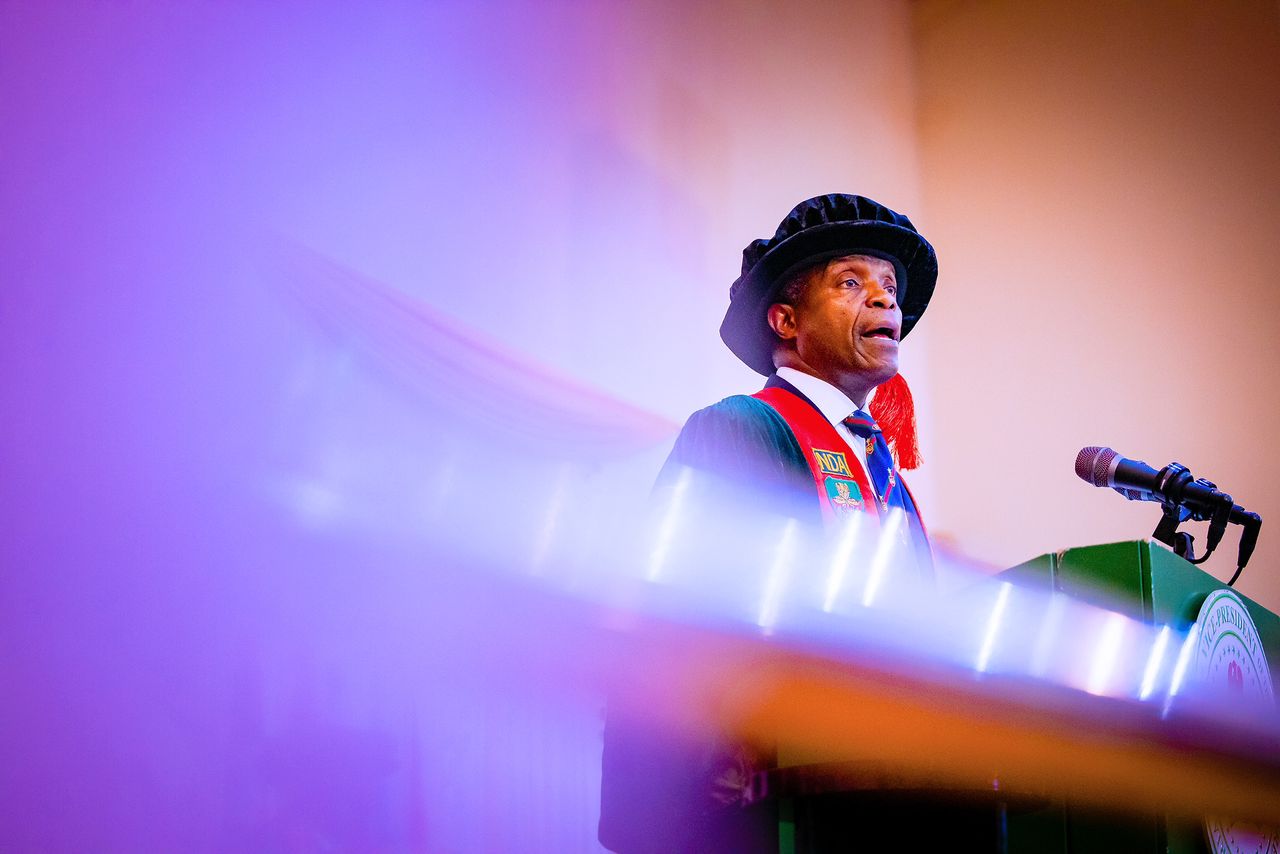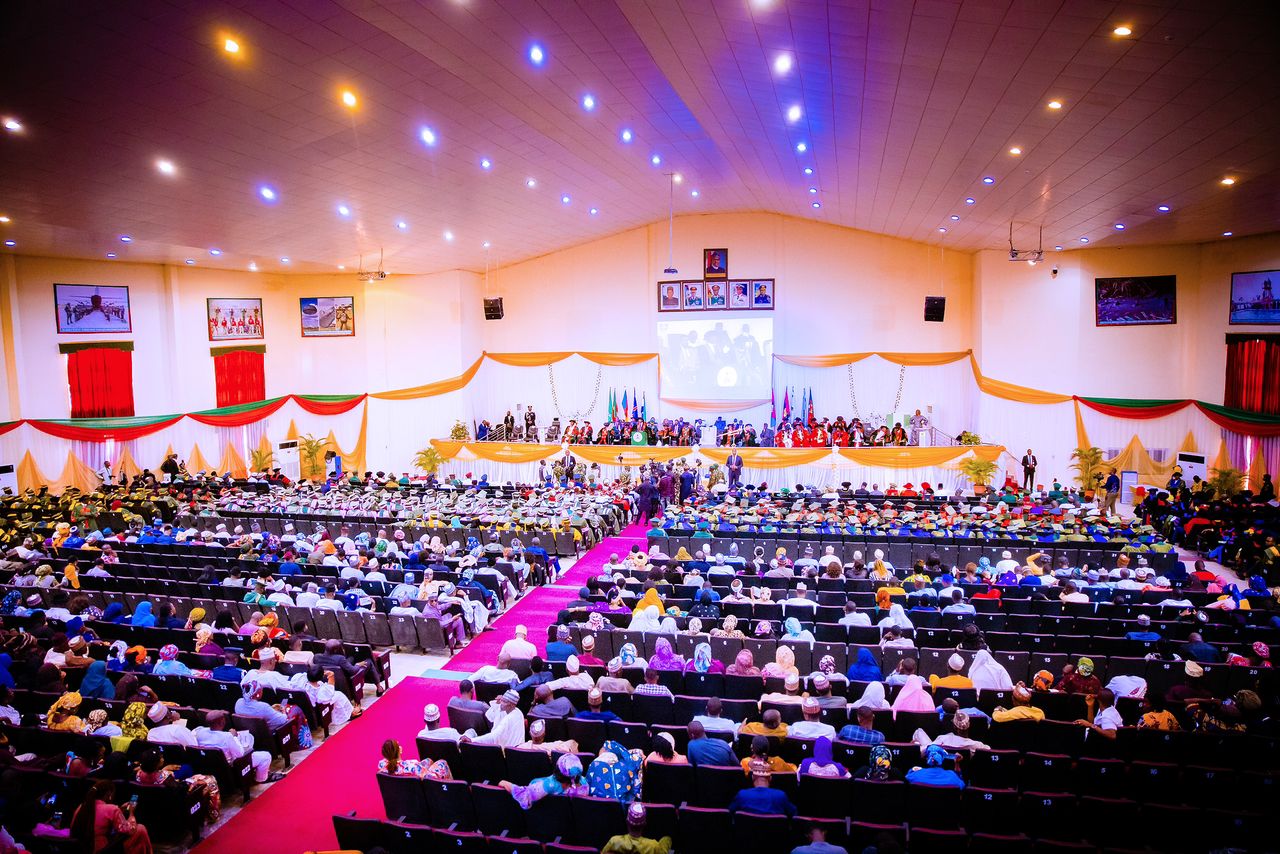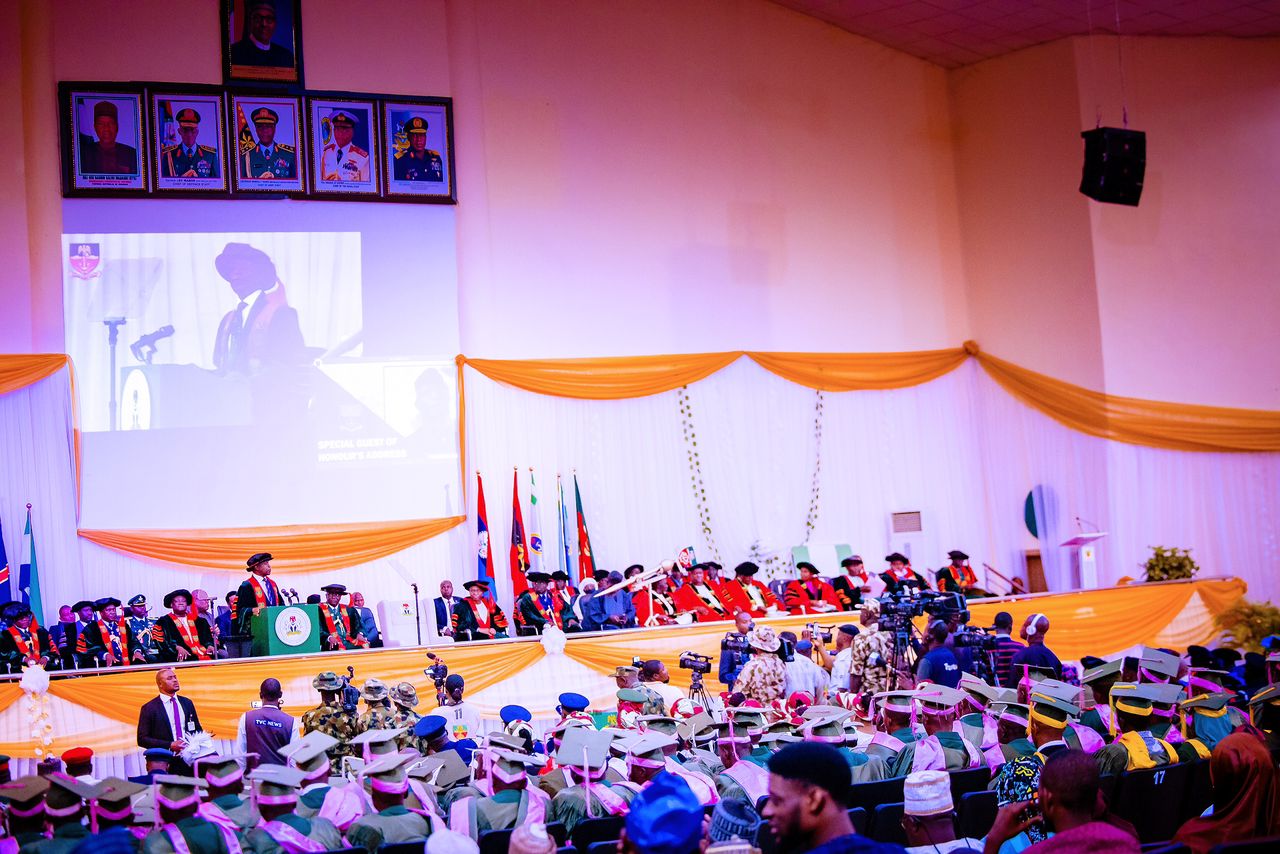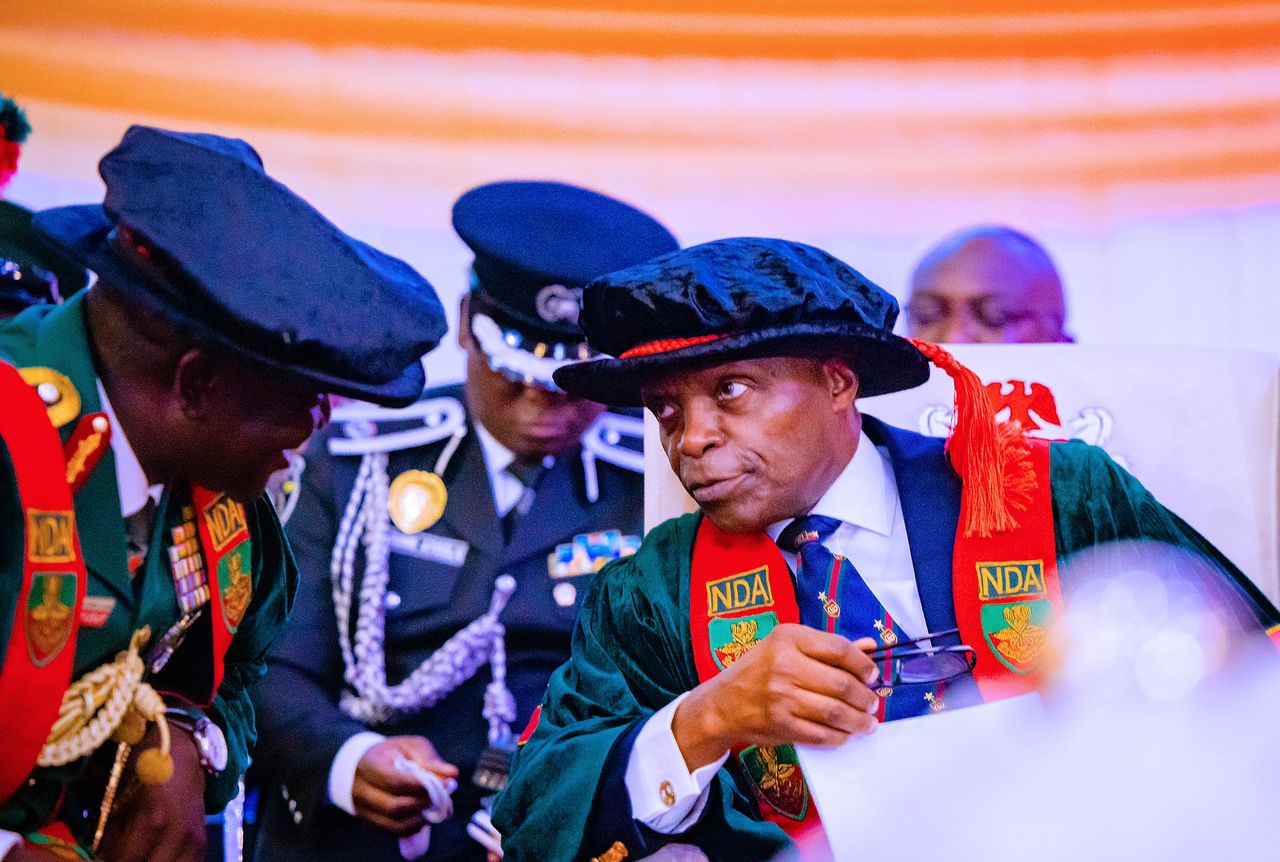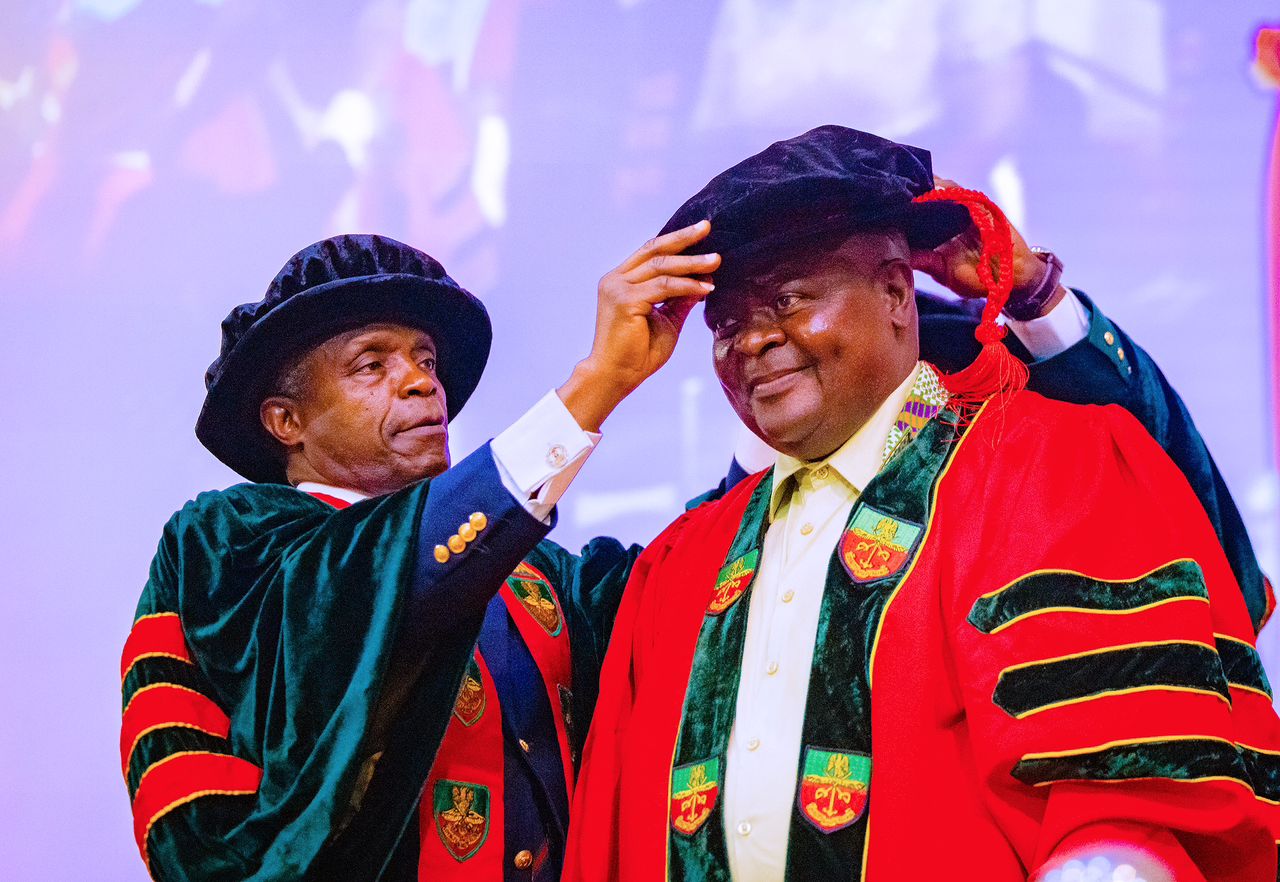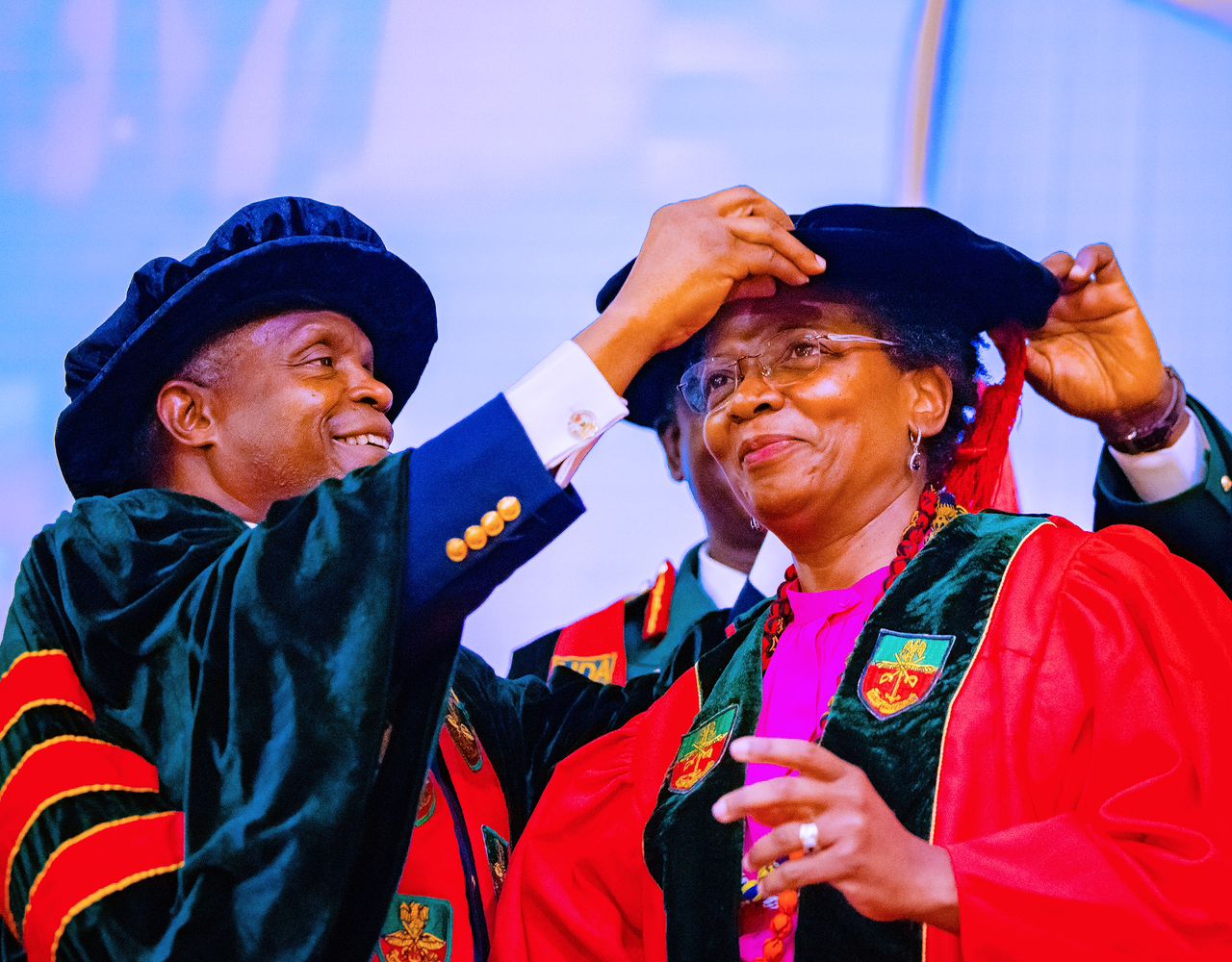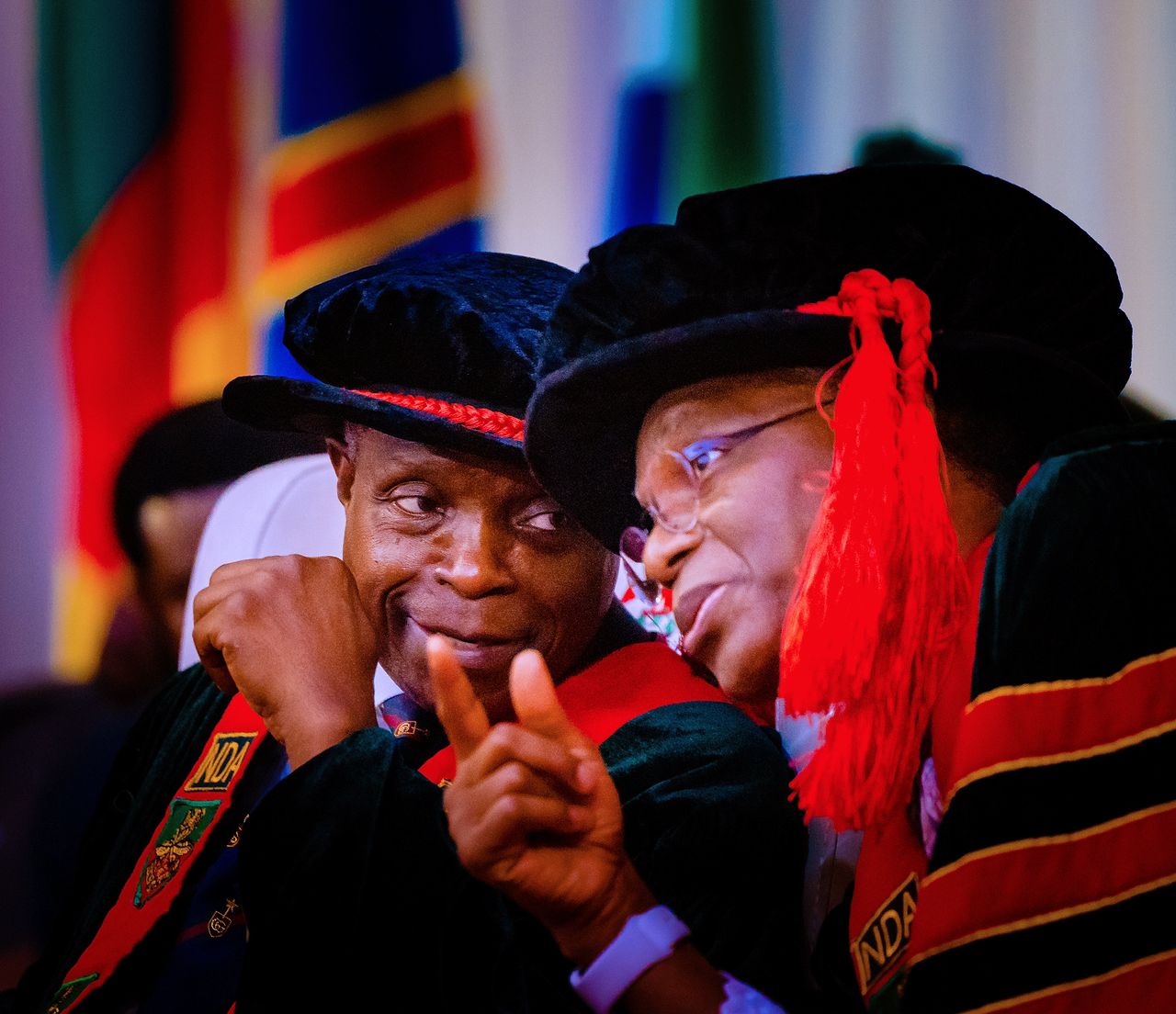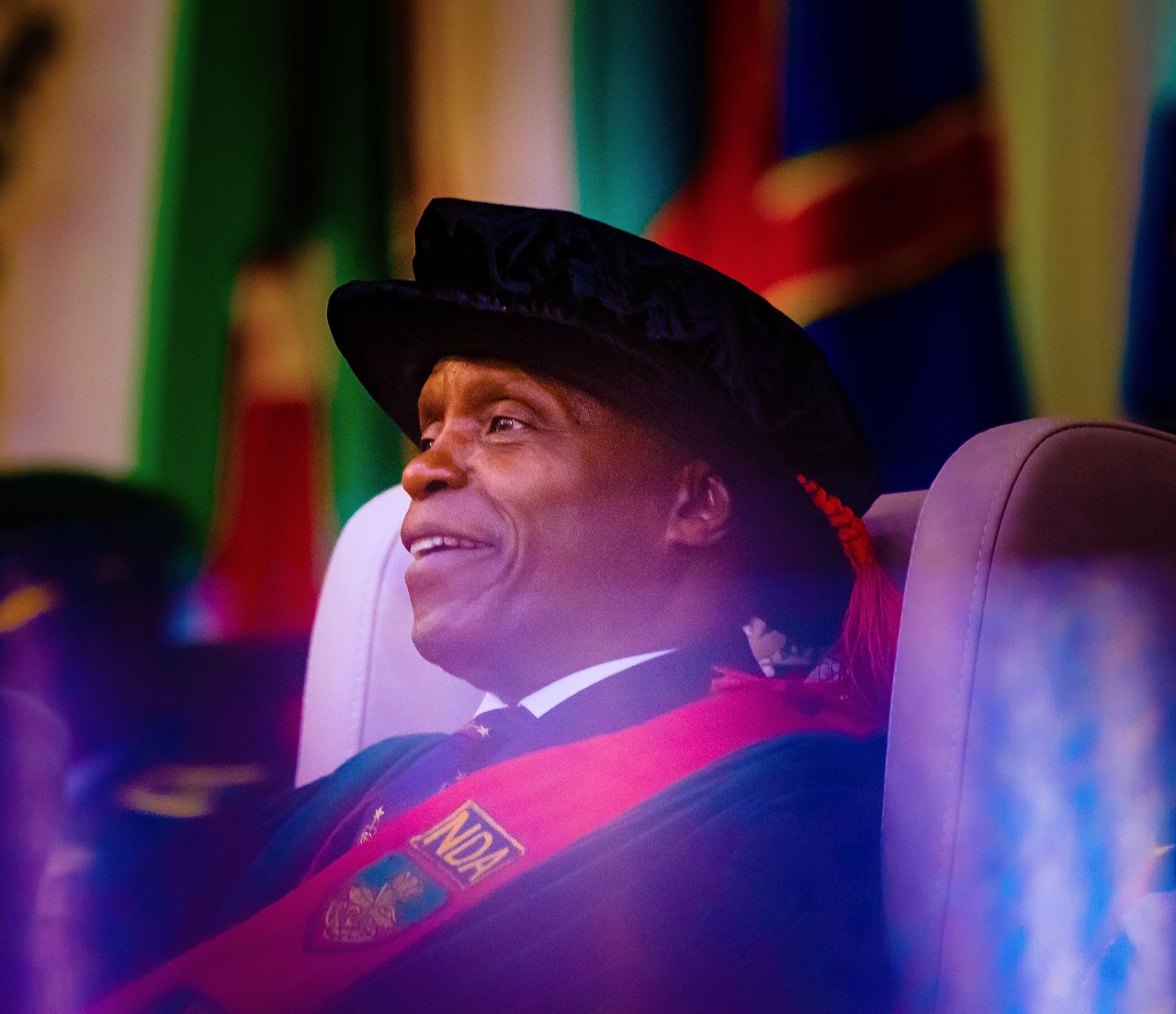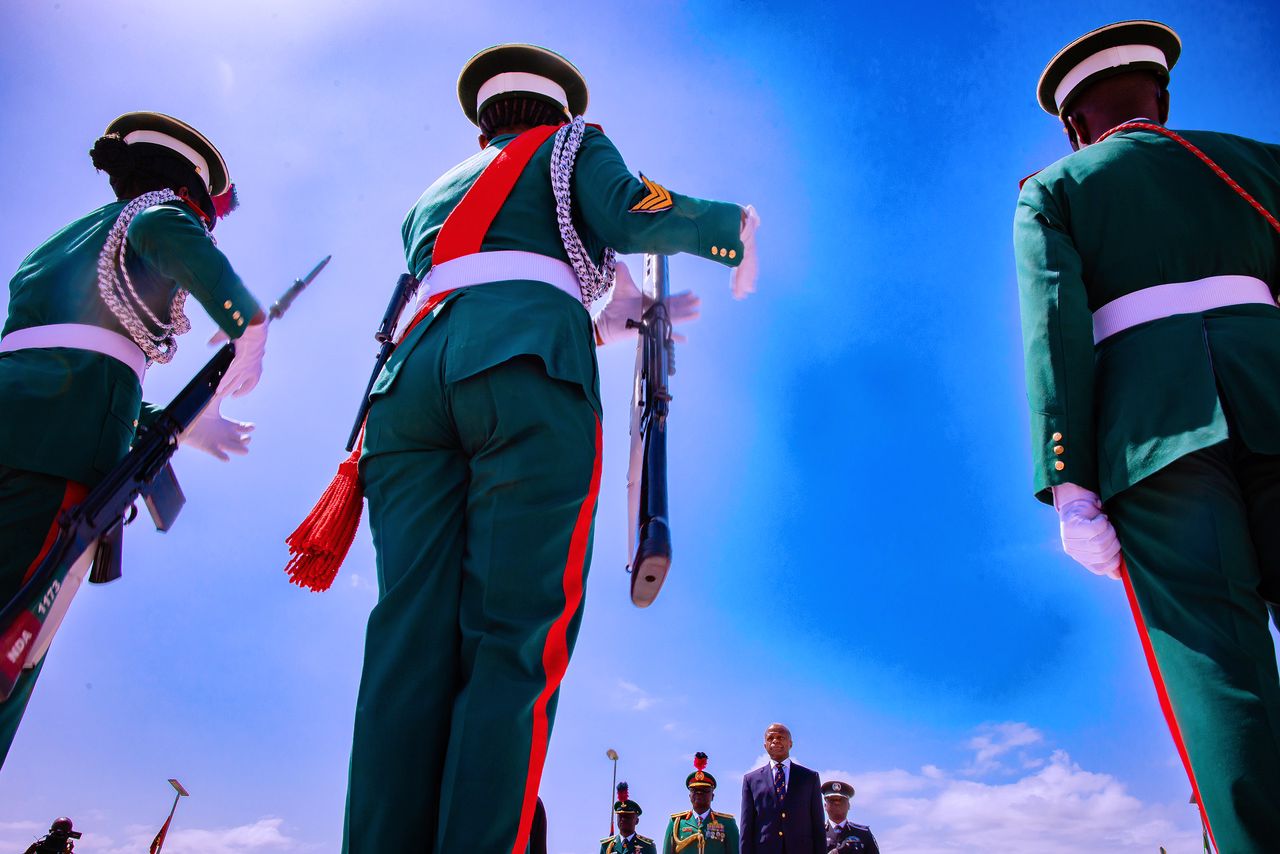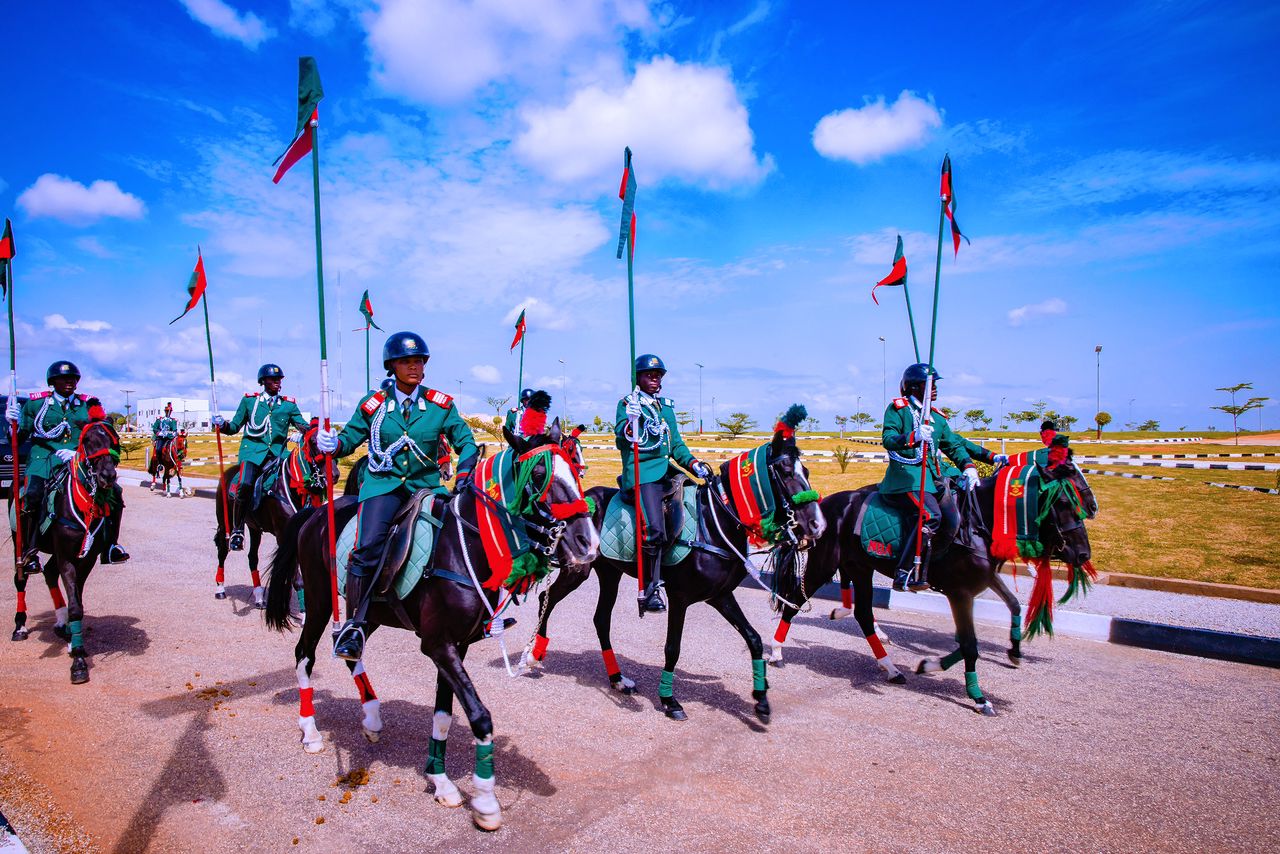32nd Convocation Ceremony Of The Nigerian Defence Academy In Honour Of Graduating Cadets Of 69 Regular Course
ADDRESS OF HIS EXCELLENCY, PROF. YEMI OSINBAJO, SAN, GCON, VICE PRESIDENT OF THE FEDERAL REPUBLIC OF NIGERIA, AT THE 32ND CONVOCATION CEREMONY OF THE NIGERIAN DEFENCE ACADEMY IN HONOUR OF GRADUATING CADETS OF 69 REGULAR COURSE AND POSTGRADUATE STUDENTS, IN KADUNA ON THE 4TH OF OCTOBER 2022
PROTOCOLS
I am pleased and honoured to join you at this 32nd Convocation Ceremony and the graduation of the Cadets of 69 Regular Course and Postgraduate Students, and the conferment of degrees Honoraris causa. I bring you the warm felicitations of the President, Commander in Chief of the Armed Forces, President Muhammadu Buhari.
I congratulate the most deserving Nigerian leading lights who today are being admitted to the distinguished ranks of honorary graduands with the conferment of Honorary Doctorate Degrees:
General Alwali Jauji Kazir Rtd, former Chief of Army Staff; General Alexander O. Ogomudia, former Chief of Army Staff and former Chief of Defense Staff; Chief Eric Umeofia, founder and CEO of Erisco Foods and Prof. Funmi Olonisakin of King’s College London, the first black woman to become Professor and first female Professor to deliver an inaugural lecture at King’s College.
This illustrious institution has for decades, produced courageous servants of our country in war and peace. And I convey the gratitude of the entire nation to the staff, past and present,for building and sustaining the high traditions of cutting-edge military training and scholarship that have produced the gallant alumni of this academy.
May I congratulate the graduate and post-graduate students who today join the illustrious generations of outstanding graduates of this academy. This convocation is a celebration of your achievement in scaling the mental and physical hurdles meant to test your abilities in your chosen profession.
That being said, you are entering a world that is far more complicated than that which your predecessors dealt with. The threat environment that you are tasked with engaging in is not the same threat environment that existed just a decade ago.
In strategic national security terms, you will be operating in a new age. While your challenges are new, it is also true that every generation must define its cause and fight its own battles. The mission of the Nigerian Defence Academy is not just to train combatants, but to produce warrior scholars in the finest martial-intellectual traditions.
It has fallen on you to be the generation of warrior-scholars and innovators that will confront our enemies with an arsenal of unconventional skills, unorthodox strategies and critical thinking. It has fallen on you to be thought-leaders that will advance development both on and off the battlefield.
Permit me therefore to highlight some of the signposts and contexts of this new security environment.
The first context is that you must contend with the mix of asymmetric conflicts, hybrid warfare, insurgencies and armed criminal activities perpetrated by criminal non-state actors.
These are conflicts that are novel in their viciousness but dated in their origins. They include the new threats of mass kidnapping for ransom and military leverage, the use of victims as human shields.
We now have to deal with the access that these criminal gangs and insurgents have to sophisticated weapons, and lethal ordinance, the new possibilities of access to even more lethal and more devastating weaponry from the dark web and an ever-growing economy in illegal arms and ammunition.
How do you engage a vicious lawless enemy along the lines of the Geneva Convention? What are the new rules of engagement with well-equipped criminal non-state actors?
The second context that we must take note of is the realities of living in the digital age. Digitization has created a whole new world, cyberspace, where all transactions and activity, commercial, social, financial, and even crucial military intelligence take place.
This virtual world requires protection and security from enemies and malefactors, including the threat of hacking and other forms of cyber warfare which could inflict damage on our cyber-infrastructure and compromise critical economic sectors such as telecommunications and financial services.
The proliferation of digital channels and the rapid growth of mobile banking raises new concerns about data privacy and security as well as vulnerabilities to malware infections designed to steal money, which if unaddressed, could subvert our economy.
We see cyberspace as part of our strategic domain and have rolled out legislative and policy measures in the form of the Cybercrimes Act of 2015 and the National Data Protection Policy to safeguard our cyber infrastructure.
Indeed, the Cybercrimes Act provides for the designation of computer systems and data networks as constituting Critical National Information Infrastructure. The National Cyber Security Policy designates the financial services sector and other sectors as National Critical Information Infrastructure. So, there is no doubt that the digital domain is one of the frontiers that your generation of our armed forces will be increasingly tasked to defend. More broadly, it is clear that we cannot secure or defend a country of this size with human assets alone, we must leverage technology.
At a time when national resources are stretched thin, we have to come up with technology-driven solutions to addressing our security needs – whether we are discussing the policing of our borders or intelligence, surveillance and reconnaissance tools aimed at identifying criminal elements within our coastal waters or locating terrorists hiding within the general population.
We must become savvier in the deployment of Intelligence, surveillance and reconnaissance tools to complement our human resources. When applied creatively, technology can be a force multiplier, amplifying our potential and our capacity to effectively secure our territory.
The third strategic context that we must be cognizant of is that of climate change and its implications for National Security and military planning. Aside from the threat of environmental damage as a threat multiplier, desert encroachment and severe weather conditions create new socioeconomic problems.
It is more certain than ever that the next few decades will see a sharp decline in the use of fossil fuels, oil and gas. Many countries in the global north are not only aggressively preparing for the use of electric vehicles, and the decommissioning of combustion engines, but they are preventing the public funding of gas projects.
Aside from the serious revenue loss from declining earnings from oil and gas, there are disruptions that may be caused because of our military’s dependence on fossil fuels for transport, logistics, mobility and weapons deployment. Certainly, we must rigorously consider the implications of these shifts on our national defence apparatus because as our country pursues energy transition, it is worth setting as a goal for our defence and security sector, an equivalent energy transition strategy for our military.
The quest for clean energy leads inevitably to considering new options for civilian as well as military uses. This is a challenge to which your generation must apply itself.
The fourth context we must consider is that of building our local defence capabilities. Today, the procurement of arms is often subjected to the vagaries of geopolitics, geoeconomics and the caprices of the international arms industry. And so, in a country the size and population of Nigeria, with threats to our citizenry and sovereignty, in different locations, it is absolutely imperative that we build our indigenous national defence capabilities. This means revitalizing our local military-industrial complex and investing in the local capacity to manufacture armaments.
All our research and development entities within the defence sector must have as a priority, the growth of our local armaments industry.
The beneficial effect of this shift will be twofold – it will gradually reduce some aspects of our defence costs while enabling us to devote our resources to procure the top of the range, state-of-the-art armaments from abroad. Simultaneously, it will open a new frontier of economic growth by advancing our industrial aspirations with the salutary effect of creating jobs for our people. To borrow a military term, this policy shift would be a force multiplier enabling us to optimize our resources, maximize our national defence capabilities and propel the local industry. These are worthy goals that should inspire a patriotic military elite.
I am excited to note that the 69th regular course is the first to use the revised, context-sensitive new defence academy curriculum. And I commend the CDS, service chiefs, commandant and faculty of the NDA on this phenomenal achievement.
Finally, this generation of warrior-scholars must devote themselves as their forebears have done to preserve the unity of our country. This has always been the highest calling of the Nigerian military. Indeed, the Armed Forces of Nigeria have long been considered one of the most unified and unifying of our institutions. In today’s environment, we recognize that national defence and the preservation of national unity in particular will not be wrought merely by force of arms.
You are all familiar with the currency of non-kinetic strategies and Fifth Generation Warfare in contemporary military thought, so I need not belabour this point. It will suffice to say that we must invest in strengthening civil-military relations and that enhancing the bonds of trust between our communities and those sworn to protect them is absolutely crucial to the cause of preserving our unity.
We must not allow the rhetoric and actions of those determined to use ethnicity and religion to advance their often narrow and selfish interests to affect our belief in the righteousness, strength, and prosperity for all that a large diverse and united nation offers to all its peoples.
Let me conclude by once again congratulating the graduating Cadets Of 69 Regular Course and postgraduate students. I wish you strength and victory in your service to our nation. I extend my appreciation to our esteemed guests who took the time to join this impressive ceremony, and I offer my profound congratulations as well to the parents and guardians of the graduates for being pillars of support and sources of succour on their journey to this day.
God bless the Federal Republic of Nigeria.


